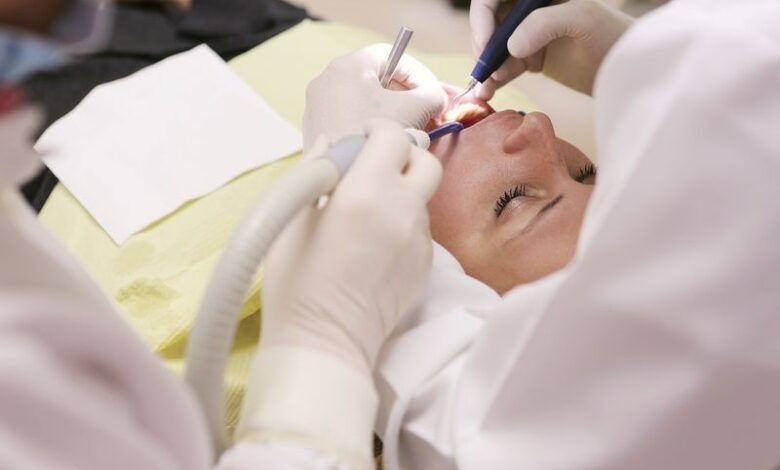Jaw Surgery Recovery Time: When Can You Expect to Heal?

Did you know that 5% to 12% of people have temporomandibular joint and muscle disorder (TMJD)? However, women are at least twice as likely to have TMJD than men. It’s also more common among younger individuals.
If you have TMJD yourself, you may have to undergo jaw surgery, also known as orthognathic surgery. It can correct jaw problems that orthodontics alone can’t resolve. Moreover, it can treat jaw and teeth irregularities and give them proper alignment.
While orthognathic surgery is effective, it’s still invasive and comes with downtime. Thus, it’s vital to factor in jaw surgery recovery time, especially if you have work or school.
So, how long is recovery from jaw surgery then? Is there anything you can do to speed up your healing?
We’ll answer all those questions below, so read on.
Typical Jaw Surgery Recovery Time
The first phase of the jaw surgery recovery timeline usually takes six weeks. That’s when the jaw goes through its initial healing process. However, complete healing doesn’t occur until after about 12 weeks.
For that reason, it’s imperative to stay on a no-chew diet following jaw surgery for at least six weeks. That helps ensure adequate bony healing.
You don’t want to chew before six weeks have passed because it places too much pressure on your bone. Do that, and your surgical incisions are at risk of re-opening. That can then raise your odds of developing infections or your surgery failing.
Other Reasons For Jaw Surgery
Aside from TMJD, jaw surgery may be necessary for severe malocclusions (teeth misalignment). In that case, you may need to get both orthodontic braces and surgery. For a more in-depth guide on surgical orthodontics, visit warrenorthodontics.com here.
Orthognathic surgery can also help repair facial injuries, such as a jawbone fracture. It can even correct retrogenia, also known as receding or weak chin.
Patients with obstructive sleep apnea may also find relief through jaw surgery. It’s a condition that causes loud snoring and affects one in seven adults worldwide. Surgery can help by moving the jaw forward, helping enlarge the space behind the tongue.
Ensuring Smooth Recovery From Jaw Surgery
Aside from sticking to a no-chew diet, it’s vital to rest for at least two weeks following your jaw surgery. Let your school or workplace know about this beforehand so you can take a two-week off.
As you rest and recover from jaw surgery, ensure you also follow these post-procedure tips.
Take Prescriptions as Prescribed
You’d likely need to take antibiotics after your jaw surgery. Please use these medications as prescribed, as they can help prevent infections. Taking them as directed also combats the growing problem of antibiotic resistance.
Your doctor is also likely to prescribe pain medicines to help ease discomfort as your jaw heals. Ensure that you purchase the ones in liquid form, as these are easier to swallow.
Avoid Strenuous Exercise
Too much movement can cause your surgical wound to open. Moreover, exercise promotes blood circulation. That can make your wound bleed more.
You can resume light physical exercise after about four to six weeks. However, avoid contact sports like basketball or football for at least three months. Such activities put you at a high risk of facial trauma, leading to prolonged recovery.
Increase Your Caloric Intake
Since you’ll be on a no-chew diet for at least six weeks, you may lose weight after your jaw surgery. That can then make you feel even weaker, delaying your recovery. However, you can prevent that and also stave off the risk of malnutrition by taking in more calories.
For example, you can use whole milk or half-and-half dairy for milkshakes. You can also use them as a substitute in recipes that call for plain water.
If you don’t have a blender or food processor yet, invest in one before your jaw surgery. With this in your kitchen, you can make no-chew meals using meats, tofu, beans, legumes, rice, eggs, and veggies. You can even make desserts with finely-blended fresh fruits.
Keep Yourself Hydrated
Surgery can make you feel nauseated (a feeling of being sick to the stomach) or may even make you vomit. Anesthesia can sometimes do that, but it can also occur when the anesthesia wears off. After-surgery pain could also lead to an upset stomach, and some medicines can even make you feel sick.
Hydration with water and other caffeine-free clear liquids can help fight off nausea. It’s also vital for replenishing fluids you lose due to vomiting.
Follow Post-Surgery Care Instructions
Your doctor might instruct you not to brush or gargle for the first 24 hours after your surgery. That may sound gross, but it can help the treated area form a stable blood clot.
On the other hand, your doctor might tell you to brush your teeth but avoid the surgical site. In that case, ensure that you switch to a soft-bristled child’s toothbrush.
Another possible instruction you might get is to rinse your mouth with saltwater. It’s usually a mixture of eight ounces of warm water and 1/2 teaspoon of table salt. This saline solution can help prevent infections, especially after oral procedures.
Beware Prolonged Symptoms
Bruising, swelling, and pain are all typical following orthognathic surgery. As long as you take your prescriptions as prescribed, they should go away after a few days.
You can also apply an icepack on the side of your surgery for 15 to 20 minutes during the first 48 hours. Do this as often as needed, but ensure that you take 20-minute breaks between each application.
Call your doctor immediately if your symptoms worsen or if you see pus or develop a fever. You may have an infection that requires treatment ASAP.
Help Yourself Heal After Jaw Surgery
There you have it; your ultimate guide on the typical jaw surgery recovery time. You now know that initial healing usually takes about six weeks, but complete recovery takes up to 12.
Those are only estimates, though, and what you do after surgery can impact your recovery. So, to help yourself heal faster, follow our tips and your doctor’s directions to a T.
Are you ready for more health and lifestyle guides like this? If so, then please feel free to check out and read our other blog posts!






